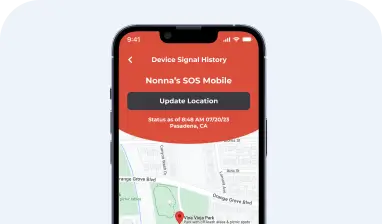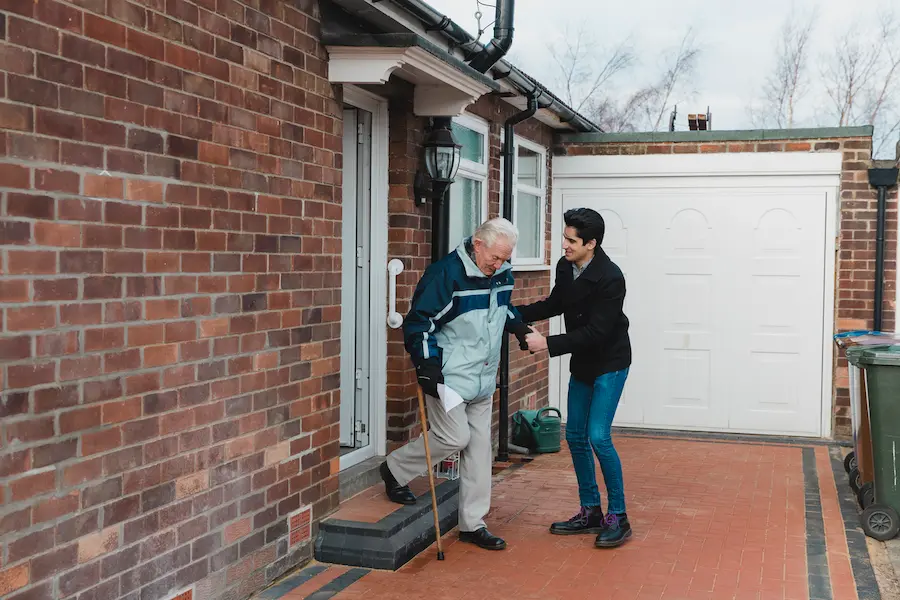Have you ever wished there was someone you could call that would walk you through the resources available to your senior loved one in their area? Or maybe you live far away from your loved one and wish you could find someone who lived close to them that could just check in on them from time to time, giving you a quick update of how they looked and acted. Wouldn’t caregiving be a little bit easier if there was an expert who could guide you through the hardest parts?
If you’ve ever felt alone when trying to navigate the senior health landscape, you could benefit from the services of a Geriatric Care Manager. Here’s what you need to know about these senior care experts, as well as how to determine if you need their services, and how to choose the best one for your situation and budget.
What Is a Geriatric Care Manager
A Geriatric Care Manager (sometimes called an Aging Life Care Manager) is a professional that is trained in caring for older adults, as well as how to access resources and support in a local area. Some Geriatric Care Managers are Social Workers or Nurses, but this does not mean all are. You can be a Geriatric Care Manager without a Social Work or Nursing license.
Almost all Geriatric Care Managers do have a 4 year degree in some type of healthcare or public health field. Some may have worked in senior care or in community senior services before transitioning to a Care Manager role.
There are some accreditations that Geriatric Care Managers can receive, if they choose to. The First is a Certified Geriatric Care Manager ™ (CGCM) designation, which is through the International Commission on Health Care Certification. This designation requires a Bachelor degree, coursework in geriatric care, as well as a 40-hour course for certification. Candidates must take continuing education courses in order to maintain their certification.
The National Academy of Certified Care Managers (NACCM) also offers credentialing for qualified Care Managers. A CMC (Care Manager Certified) must meet qualifications as well as take a standardized test. In addition, certified candidates complete ongoing education in order to maintain their certification.
What Can a Geriatric Care Manager Help With?
A Geriatric Care Manager is truly a jack of all trades when it comes to senior care, advocacy, and guidance. They are typically experts in their local area, giving them connections to resources in their service area that can benefit both seniors and their family members.
A Geriatric Care Manager is there to step in to fill a gap, provide education, and even assist with family communication. Here are a few examples of tasks they may help with, depending on what the senior and their family members need:
- Schedule transportation to/from medical appointments
- Identify social services and resources that could benefit the senior
- Provide counseling and guidance for any next steps to family members
- Point family members to financial and legal services that meet their needs and budget
- Attend medical appointments with the senior and provide details about the appointment to designated family members
- Start and facilitate difficult or awkward conversations about challenging topics, such as end-of-life wishes or driving capabilities
- Schedule home care services and follow up with the agency and the senior to determine how services are going
- Advocate for the senior during care plan meetings for home care, senior living, or other medical services
- Be the local contact person for wellness check-ins and follow-ups
Do I Need a Geriatric Care Manager?
Geriatric Care Managers are excellent resources, particularly for family members who lack experience with senior services or care. While most family members could benefit from the support of one, here are some specific situations that might warrant a call to learn more about services:
- You live far away from your aging loved one and need support with finding resources and services that are local to your loved one
- You are overwhelmed by your loved one’s needs, condition, or recent diagnosis, and aren’t sure where to start when it comes to supporting them
- You are an only child, or your siblings are uninvolved, uninterested, or far away, and you need extra help with tasks for your loved one
- Your senior loved one doesn’t always listen to you and your advice
- Your loved one is struggling with finances, and you don’t know how to apply for benefits or support
- Your family members do not agree on the next steps for your loved one or argue about how to best support your loved one
- You need to take a break from your role as a family caregiver due to stress, illness, or preference
A Geriatric Care Manager is a great addition to your loved one’s care team in almost every situation. Even better, the right Care Manager will assess your loved one’s needs and offer a menu of support services that you can choose from, as you need them. This means you can reach out for additional help from your Geriatric Care Manager as your needs change or increase.
How To Find and Select a Geriatric Care Manager
You want to find a Geriatric Care Manager who is kind, compassionate, and skilled. Just as with any healthcare professional, you’ll want to pick a few to interview so that you can find the right fit for your family’s needs and budget.
- Ask for recommendations from your loved one’s primary care physician or geriatrician
- Visit the Aging Life Care Association website and search for an expert. Remember to search in your loved one’s area, not yours
- Contact your local Area Agency on Aging for a list of Geriatric Care Managers in the area
Once you have a few potential candidates, begin to reach out via email or telephone to learn more about each one. Ask about:
- Hourly fees, as well as any minimum hours that must be met each month or week
- Retainer fees, or start-up fees that would include any initial assessments
- How they are connected in the area where your loved one lives. Do they know about local resources and support?
- Can they drive to meet your loved one in person?
- How do they communicate with family members so that everyone is on the same page? Do they use a specific app or online portal, or do they send an email to the designated parties?
- Do they help with finding senior living as needed? If your loved one enters a senior living community, would they still be involved with their care and care planning, if you would like them to be?
Working hand-in-hand with a Geriatric Care Manager can not only benefit your aging loved one, ensuring they have access to all the services possible, but also to you, ensuring you have a listening ear and expert guidance when navigating the senior services landscape.















